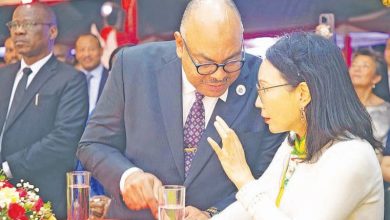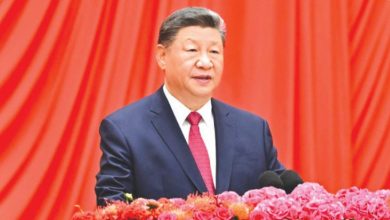Dodoma women shrug off climate change threat with solace in irrigation farming

DODOMA: AFTER a series of crop failures due to irregular changes in the rain patterns, a resident of Makoka village in Dodoma Region resorted to irrigation-aided farming, and now it pays them well.
“It is not the same situation like that we experienced in the 1990s when farming was downgraded as a profession for those who didn’t attend school,” recalls Victoria Mweri,a retired Primary School teacher.
She said after finding the rain patterns had become unpredictable, she opted to venture outside the box.
She is now a successful farmer, and she enjoys farming.

Ms Mweri, who is raising four grandchildren now, said she started farming in 1996, the time when she moved to Mkoka Village.
“Back then, it would start raining in November or December. With time, it started to rain in January or February, after which a prolonged dry season followed.
“This made farming unsustainable,” she recalls
When it began to rain in December 2023, Ms Mweri was anxiou,s not knowing whether to take this as the rainy season. She wondered how long the season would last and or, if the rainfall would be adequate for farming.
Now she blames the recurring crop failure and resultant food insecurity in Mkoka Village on climate change .
”This is why small-Scale farners now plant crops such as peanuts and millets that take shorter time to mature .They also tend to be more drought resistant,” she explains.

Adding, she says water levels at the river they relied on for irrigating their farms were reduced in 2023, causing chaos. “People accused sunflower growers who relied on irrigation of the overuse of the river’s water. So we were forced to reschedule the time table to irrigate our crops at night, yet it didn’t help our sunflowers to flourish,” she said.
ALSO READ: CEOs’ key takeaways from the 2025 Forum
Ms Mweri’s team is, however, perturbed. The members planned to try more crops and apply drip irrigation, which will ensure efficient use of water. Adding, she says more women are adopting these farming options and they have reaped its benefits even when it takes too long for the rain.
Ms Mweri complements the farming with the sale of seeds. She uses the proceeds to support farming in subsequent seasons, and now she is committed to teaching women about this kind of farming.
“I share the knowledge I have with my community, many farmers now use tractors, and there is a significant involvement of women in this type of farming .But still, they need to read more,” she notes.
Vicy Msamba, a climate change expert, describes women’s efforts as resilient farming, which addresses the effect of climate change challenges by choosing seed, crop types, and adequate soil preparation that leaves biodiversity intact.
She suggests maximising rainwater harvesting even as farmers buy water fo irrigation.
Besides that, she recommends proper crop storage techniques to preserve yields for income generation and food security.
Ms Msamba adds saying women are the first victims of climate challenges because they are extensively involved in farming activities from land preparation to seed planting while men mainly focus on proceeds sale.
“ Women are psychologically affected by crop failure, and they lack access to information and miss out on opportunities for workshops and media coverage, thus hindering their progress.
She says climate change is a reality, and after observing how crops are destroyed in the fields, she thinks that utilising technology and water harvesting techniques will help farmers to adapt to it.

“We continue to educate women and provide them with information on how to cope with these changes.
Charles Ogutu, the Executive Director of Tanzania Agriculture Markets Development Trust (AMDT) says they have allocated sufficient funds to improve agriculture and innovation, and that will extend to more regions.
“Our main goal is to ensure every farmer is aware of the climate change challenges when planning to farm. They need to consider information, technology, and new methods that can help them avoid crop failure,” he insists.
He added, “This includes using crops that are resilient and take a short time to mature, besides various other techniques to conserve water.
Mr Ogutu insists, crops such as beans greatly contribute to Africa’s food security: “No crop requires rain; all crops need moisture, and water brings moisture. If farmers rely on rain, they will incur losses or may harvest little when rain does not come on time or to the desired amount,” he notes.
He says his organization encourages farmers to use available water sources such as wells, trees, and lakes efficiently.
He said they provided education through partners to help farmers understand and use technology such as drip irrigation.
Some farmer, he adds, have even dug their wells and see positive change.
Additionally, he said his team empowers research institutions to produce seed that withstands climate change and reaches farmers.
“ Irrigation farming is about delivering water to where the farmer is instead of waiting for rain. Even if they are not close to rivers, they can use an irrigation channel and drip irrigation, which involves using drops and a sprinkler system from above,” he explains.





